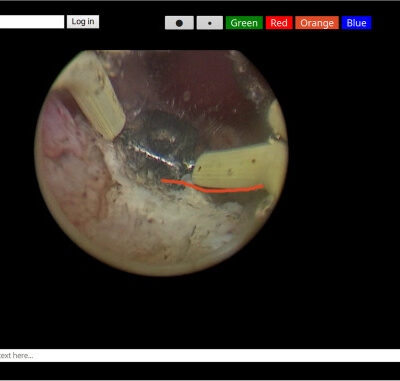Marco Amato, Ahmed Eissa, Stefano Puliatti, Cristian Secchi, Federica Ferraguti, Marco Minelli, Agostino Meneghini, Isotta Landi, Giulio Guarino, Maria Chiara Sighinolfi, Bernardo Rocco, Giampaolo Bianchi, Salvatore Micali
- PMID: 33538866
- PMCID: PMC7859466
- DOI: 10.1007/s00345-021-03594-9
Abstract
Introduction: Telementoring is one of the applications of telemedicine capable of bringing highly experienced surgeons to areas lacking expertise. In the current study, we aimed to assess a novel telementoring application during the learning curve of transurethral enucleation of the prostate using bipolar energy (TUEB).
Material and methods: A telementoring system was developed by our engineering department. This application was used to mentor ten prospective cases of TUEB performed by an expert endourologist (novice to the TUEB). A questionnaire was filled by the operating surgeon and the mentor to provide subjective evaluation of the telementoring system. Finally, the outcomes of these patients were compared to a control group consisting of ten consecutive patients performed by the mentor.
Results: Ten consecutive TUEB were performed using this telementoring application. Delayed and interrupted connection were experienced in two and one patients, respectively; however, their effect was minor, and they did not compromise the safety of the procedure. None of the patients required conversion to conventional transurethral resection of the prostate. Only one patient in our series experienced grade IIIb complication.
Conclusion: The telementoring application for TUEB is promising. It is a simple and low-cost tool that could be a feasible option to ensure patients’ safety during the initial phase of the learning curve without time and locations constraints for both the mentor and the trainee; However, it should be mentioned that telementoring cannot yet replace the traditional surgical training with the mentor and trainee being in the operative room. Further studies are required to confirm the current results.
Keywords: Benign prostatic hyperplasia; Learning curve; Telemedicine; Telementoring.
© 2021. The Author(s), under exclusive licence to Springer-Verlag GmbH, DE part of Springer Nature.
Conflict of interest statement
The authors declare that there is no conflict of interest regarding the publication of the current study.

